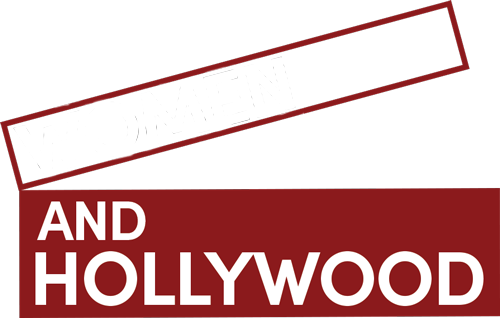All of the panels and conversations listed below are available to access for free on the Athena Film Festival YouTube channel.
Panels and Conversations for the festival are also available to listen to as audio tracks. Click here to listen on SoundCloud.
March 3: Reassembling Identity: Social Media and the Path to Self-Definition
Most of the discourse about the internet and social media focuses on how it’s slowly draining us of our humanity and ignores the radically inclusive communities where people who are left out of or marginalized in their immediate communities can find support and love. This discussion will focus on these communities on different platforms that are helping people build a sense of self on the internet. From a sex-positive community to a female trucker finding her place, social media allows many to come as they are.
This is a featured conversation of our Come As You Are program area.
March 5: Understanding Numeracy: Breaking Down Numbers to Break Up Oppression
Numbers don’t lie is a common refrain. 2+2 equals 4 and will never equal 5. But how do you see the number 5? Do you think of five hash marks, five people? How do you see the number five when you hear that only five women have ever been nominated for Best Director? Or when you read the news that one in five New Yorkers has contracted COVID-19?
Enter numeracy, the ability to understand and work with numbers. During this conversation we will break down common misinterpretations of numbers and statistics, and discuss how to critically understand the daily numbers that impact our lives.
This is the featured conversation of our Making it Happen: Women in STEM program area, sponsored by The Alfred P. Sloan Foundation.
March 6: How Women Athletes Are Leading the Way on Gender Equality and Racial Justice
If you are paying attention, you will notice that women athletes are using their platforms to challenge the status quo and push for systemic change. Megan Rapinoe was the first professional athlete to take a knee after Colin Kaepernick. The WNBA dedicated this past season to Say Her Name and Breonna Taylor. Ada Hegerberg who is one of the world’s top soccer players sat out the 2019 World Cup because of Norway’s lack of investment in the women’s team. This conversation will focus on how women athletes are leading, what impact they are having and how we can all support their work.
This conversation will be in conjunction with a screening of the documentary My Name Is Ada Hegerberg.
March 6: Entertainment on Lockdown: How COVID Has Changed the Industry
The profound impact of COVID-19 on the entertainment industry has been both tragic and revolutionary. In this panel, women who work in diverse areas of the industry will discuss how the virus caused them to pivot in their careers, which changes in the business might outlast the pandemic, and how the industry can evolve as a result.
This conversation is hosted in partnership with Barnard Women in Entertainment (BWE).
March 8: Women’s Leadership in COVID Era
It has not been lost on anyone that countries that had female leaders fared much better than countries that did not. What are the takeaways from these success stories as we create a new world post-pandemic?
March 8: Girls Rights and the Pandemic
Girls across the globe have been devastatingly impacted by the pandemic. Rising rates of sexual violence, child marriage, female genital mutilation and sexual exploitation have been described as the shadow pandemic. This discussion will forefront people on the front lines of the global fight for the future of girls.
In partnership with Equality Now, this conversation will be in conjunction with the short documentary A Life Too Short.
March 10: Emerging at Your Own Pace: Different Pathways in Film
Too often we associate “emerging” with “young” and Lord knows Hollywood already has an ageism problem. Let’s undo some of that. This will be a panel of women who may have entered the world of filmmaking later in life or who have been working in the industry but are now switching gears. We’ll discuss “success” and what that means to different people, how youth is valued, what does emerging mean, and how to negotiate working in an industry that is still very patriarchal and youth-centric. Following your dreams takes resilience and these women embody that determination.
This is a featured conversation of Resilience through Uncertainty program area.
March 12: WWSLD? A Conversation Between a Mother and Daughter
This is an intimate conversation between the subject of the film, Nancy “Vincenza” Kulik, and her daughter, filmmaker, and activist, Regina K. Scully.
This conversation will be in conjunction with the short documentary What Would Sophia Loren Do?.
March 13: Bringing in New Voices in a Post-Pandemic Film Industry
Okay, we know it feels weird to talk about “post-pandemic” right now when we’re still living with the consequences and effects of COVID-19 daily but this will end and we will enter a post-pandemic world and why not start talking about the art we want to make? The COVID-19 pandemic has changed the way we live, the way we think about the world, and how we create. What will creators take from this time into the future of filmmaking? How will our new perspectives on the world show up on screen? Let’s talk with the creators who will shape this next chapter.
This is a featured conversation of our Discovery program area, sponsored by FF2 Media.
March 14: Master Class with Showrunner Gloria Calderón Kellett
Join us on Sunday, March 14 for a Master Class with Showrunner, writer, and actress Gloria Calderón Kellet.
Sponsored by Stephens College MFA Program on TV and Screenwriting
March 16: Reframing the Conversation on Reproductive Health
Reproductive health is a wide topic yet abortion is consistently one of the few topics in reproductive health that gets discussed on a national stage. It’s time to change the conversation. This discussion will bring attention to topics that get left out of the conversation including disparities in maternal care for Black women and women of color, miscarriage, forced sterilizations, and more. We’ll also look at the label “reproductive health” and ask ourselves if it actually encapsulates the objectives of this area of medicine as well as discuss, should reproduction and birth be so centered?
This is a featured conversation of our A Look At Health program area.
March 18: Disability Access and Visibility in Film and Television
25% of Americans are living with a disability, yet we rarely see disabled people on TV and film. As the film industry has pushed for more inclusion, one of the areas that has been often left out of the conversation is disability. But the pandemic has helped bring this issue to the fore. This conversation will discuss how disabled people are portrayed on screen, who’s telling these stories and the challenges disabled filmmakers face.
This is a featured conversation of our Nothing About Us Without Us program area, sponsored by Walt Disney Studios.
March 18: Roundtable Discussion on Indigenous Representation and Storytelling
“Who Lives, Who Dies, Who Tells Your Story” is one of the famous lines from the musical Hamilton. As the conversation about inclusion becomes more robust, the issue now is not just what stories are we seeing, but WHO is telling them. This roundtable of Indigenous filmmakers will discuss their struggles and what they want from future media.
This is a featured conversation of our Nothing About Us Without Us program area, sponsored by Walt Disney Studios.
March 20: Producing During and After COVID
COVID has changed the industry for the foreseeable future. There are many questions on how to navigate it particularly on an independent film budget. Top producers discuss getting their films made as well as navigating awards and distribution during the pandemic. The conversation will also include where they see the industry going.
This conversation is sponsored by The Adrienne Shelly Foundation.
March 20: Writing Roundtable
There would be no films or TV without the writers, yet writers don’t get the visibility they deserve. This conversation will cover topics including what writers use for inspiration, how to remain connected while writing on your own, what writers programs are helpful, and how they make it all work. This conversation will include writers at different levels of the industry for a wide-ranging discussion on the best strategies for navigating the industry.
This conversation is sponsored by Christine A. Schantz.
March 23: Deconstructing Whiteness
In the wake of the recent social upheaval, there has been increased interest in racial justice but it still operates much the same way it always has, with the conversation being centered on the “what” of the matter, the harm being perpetuated against marginalized communities, and not the “why” and “how”, of white supremacy. In order to get to the root of the problem of white supremacy, whiteness must be deconstructed, pulled down from its hallowed place as default, and examined to show the ways in which its assumed invisibility has created the systemic racial inequity we see today.
This is a featured conversation of our Tear it Down: Dismantling White Supremacy program area, sponsored by Hanky Panky.
March 23: Decolonizing Documentary
As we know, documentary filmmaking is a vital tool to expose a wide audience to worlds very different from their own, but what happens when the person behind the camera is just as much of an outsider as the audience? It is a fact that there is an all-too-prevalent colonizing gaze found in the documentary film world. This conversation will break down the current landscape of documentary filmmaking and talk about how this vital film area can move forward in a new and more inclusive way.
This is a featured conversation of our Tear it Down: Dismantling White Supremacy program area, sponsored by Hanky Panky.
March 23: The Push for Decarceration
This is a solution focused panel discussion around both the necessity for decarceration and different methods of pursuing it including the possibility of prison abolition.
This conversation will be in conjunction with the short documentary The Third Strike. This is a featured conversation of our Tear it Down: Dismantling White Supremacy program area, sponsored by Hanky Panky.
March 25: Creating Utopias: Science Fiction as a Model for Future Planning
As you may know, or will soon learn from Coded Bias, science fiction storytelling has deeply influenced trends in technological advancements or what we think “the future” should look like. What is a utopia? What is a dystopia? What does the future hold? What could the future hold? All of these questions are ones that science fiction creators have contemplated as they craft their worlds. These are also questions many of us are contemplating in the wake of a pandemic that has forced us to rethink the future. This panel will bring together science fiction creators from different mediums to discuss the worlds that they have created as well as what they see for what comes next.
This is a featured conversation of our Imagining a New Future program area.
March 25: Black Feminist Future: Reconceiving Freedom for Collective Power and Justice
You’ve probably seen someone post “Thank a Black Woman”, or “Trust Black Women” or “Black Women Saving Us Yet Again”. Refrains such as these have become somewhat ubiquitous after recent electoral victories though very little action has been seen behind the words. If Black women are indeed going to save us, we should definitely start listening to them. Enter the Black feminist movement, a movement whose eye towards the future must be centered in order for any form of true justice to prevail.
This is a featured conversation of our Imagining a New Future program area.
The views and opinions expressed at the Athena Film Festival are those of the speakers and do not necessarily reflect the official policy or position of Barnard College.



